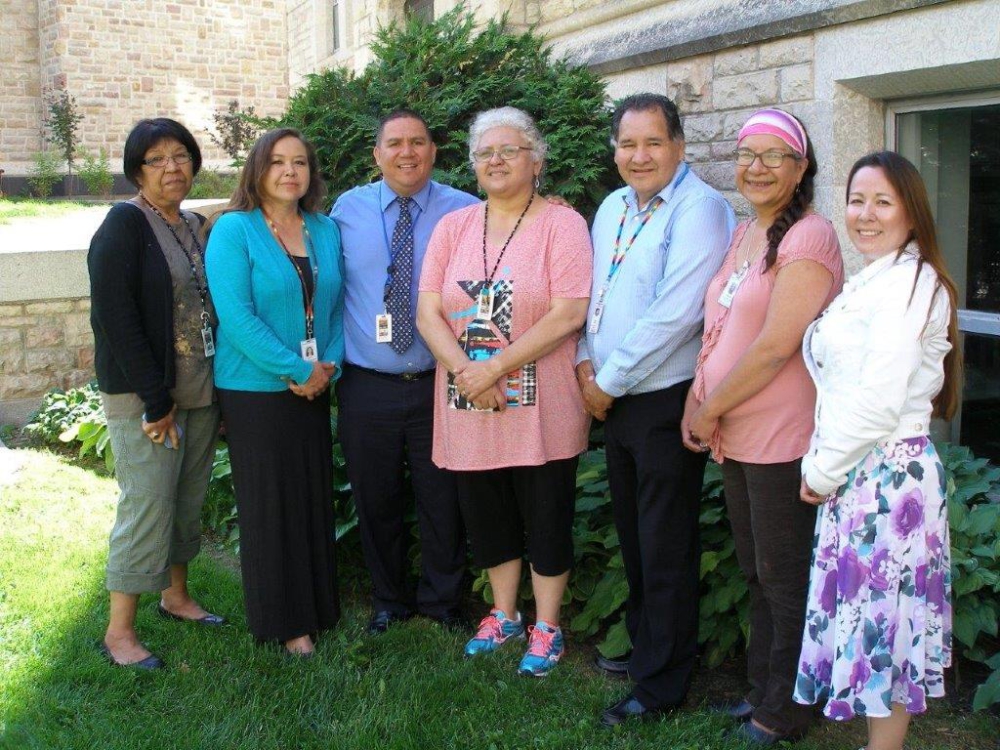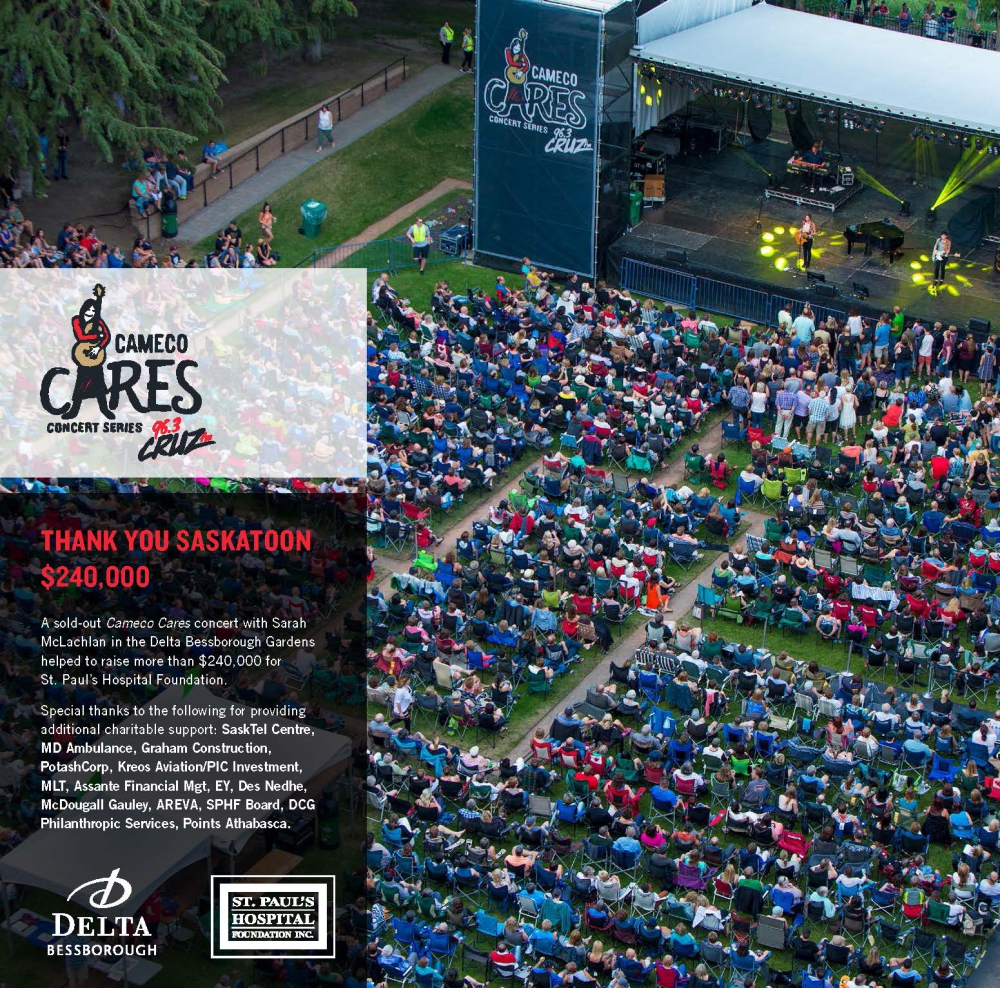Addressing Cultural Needs in our Emergency Rooms
Nītisānak means “my siblings” and therefore a Nītisānak Navigator is simply “helping my siblings.”

St. Paul's Hospital Foundation is currently raising funds to support a new Emergency Room Nītisānak Navigator position at St. Paul’s Hospital.
The Emergency Room Nītisānak Navigator will provide culturally sensitive, holistic health care support to patients with a broad variety of issues in Emergency Rooms in a one-year pilot project funded through St. Paul’s Hospital Foundation.
The Nītisānak Navigator will act as a primary resource for complex cases where language issues and communication problems or the inability to access services may be a barrier to effective care, treatment and/or transfer of care.
The Navigator can also be a resource for those individuals who come to our Hospital’s Emergency Room when they are lonely, require shelter due to inclement weather, or when they do not know where to go to find resources for meals, transportation and accommodation.
Photo: A painting in the St. Paul's Hospital First Nations Prayer and Ceremonial Room by SPH Artist in Residence Marlessa Wesolowski
The Nītisānak Navigator would play an essential role in helping decrease the disparities that many First Nations and Métis patients, families and communities face by helping bridge the gap and understanding of the type of services and resources that best suits the individual from a patient-centered approach. - Valerie McLeod (RN CDE), Lead, First Nations and Métis Health Service (FNMHS)
The Nītisānak Navigator
-
will be trained in a relevant health care field, having a background in Social Work, Nursing or Mental Health and Addictions.
-
will be well versed in Non-Insured Health Benefits, jurisdictional issues and protocols
-
will have access to language translation skills, including Dene, Cree, and Salteaux
-
will have cultural awareness skills and training
The Navigator will provide a patient centered approach and be the voice of the patient whom may not otherwise speak up and be heard. In addition, due to the collaboration between patient and Navigator, a stronger relationship will be built within the health system, where prior tensions have been evident. - Juanita Graham, SPH Health Navigator FNMHS, MSW, RS
St. Paul's Emergency Services and the Nītisānak Navigator
St. Paul’s Hospital serves a culturally diverse and inner-city population who currently lack consistency in our health care system. The Nītisānak Navigator role will fill the void that exists for those with social and/or financial needs that have nowhere else to turn but to a 24 hour Emergency Room that is in close proximity to where they live. – Ryan Baliski, Emergency Room Nurse Manager

Being in hospital is a stressful situation that can be further intensified by the realities of socio-economic circumstances, culture, and language barriers. There are community supports in and outside the Hospital that are designed to help these patients, but they are not useful if patients are not aware of these services, or do not know how to navigate through the health care channels. Presently, this support is provided outside of the Emergency Room only during regular working hours by Health Navigators through First Nations and Métis Health. However, there is an illustrated need for this kind of support in the Emergency Room during peak emergency hours.
Additional Challenges for First Nations and Metis Patients and the Nītisānak Navigator
First Nations and Métis patients face diverse challenges when they come into Hospital environments. Furthermore, accessing nationally supported health care may present an additional challenge, which often requires a sound knowledge and understanding of the administration of Health Canada Non-Insured Health Benefits (NIHB) and alternate financial resources. A recent chart audit at St. Paul’s hospital examined the increased delays that First Nations and Métis patients experience. These delays were due to medical issues or complications. However, research also indicates delays were due to navigational and benefit issues such as: not having a bed available at the home hospital, family availability, medical equipment availability at home, wait time for equipment and approval from NIHB.
Improved Emergency Room Flow
The Nītisānak Navigator will complement the already existing supports provided by the First Nations and Métis Health in our Hospital; however, this Navigator will be integrated into the Emergency Room to be available during peak usage. As an essential component of the Emergency Department multidisciplinary case management teams, the Nītisānak Navigator will help improve patient flow within St. Paul’s Hospital’s Emergency Room.
The benefits of a Nītisānak Navigator within the Hospital are many. Having an individual present during peak patient registration times who is well versed in the First Nations and Métis culture as well as our medical system would provide a more consistent resource than what currently exists in our system. The Nītisānak Navigator has the capacity to become an important and central role within our Hospital and potentially expand across the entire health region. I envision the Nītisānak Navigator role, in collaboration with relevant stakeholders, to be the beginning of a more focused energy toward the individuals who need it most. - Ryan Baliski, Emergency Room Nurse Manager
The Nītisānak Navigator will work with the Emergency Room to guide patients in accessing appropriate care, whether through the Emergency Room or a community based provider. The Navigator will develop specialized care plans through collaboration with the patient, relatives, caregivers, health and social care professionals as well as assisting with coordination of individual health care needs. Individualized case-by-case support will be provided to patients – advancing the patient-centered approach that is based on the unique needs and perspective of the patient, family and community. With this type of essential service, Emergency Room process and services will be significantly improved.
Bridging Language and Cultural Barriers
The Nītisānak Navigator will provide services to help clients better understand the hospital care system – including providing translation services in Cree, Dene and Salteaux for First Nations and Métis patients. The Navigator will also provide links to spiritual connections internally or externally based on the patient and family needs and requests. St. Paul’s Hospital is a leader in Spiritual Care, and has a First Nations Prayer and Ceremonial Room on-site with regular ceremonies occurring every month.
month.
Timely Discharge and Reduced Hospital Stays
The Nītisānak Navigator will play a very important role in helping ensure patients from the Emergency Room have community supports and services in place prior to discharge. They will facilitate timely discharge of patients and promote the connections between internal emergency services and external health services to support continued patient care, independence and reduce the rate of return visits to the Emergency Room.
The Navigator and First Nations and Métis Patients
To ensure continuity after transfer of care from St. Paul's, the Navigator will play a key role in linking the patient with:
-
their home community,
-
on or off-reserve First Nation or Métis community organizations,
-
other urban and rural agencies.
The Navigator will work to assist patients through advocating and helping with negotiation, conflict resolution and mediation issues relating to accessing community services and resources.
First Nations and Metis Health Service Team (l-r): Delia Allberg, Health Navigator; Juanita Graham, Health Navigator; Gabe Lafond, Director; Rosanne Glass, Admin Support; Gilbert Kewistep, Cultural Advisor; Hermaline Bear, Health Navigator; Valerie McLeod, Lead. Missing: Judy Pelly, Culture Advisor.
If you would like to support the Nitisanak Navigator at St. Paul's Hospital, consider Donating Now or contact the St. Paul's Hospital Foundation Manager of Major Giving at 306-655-5832 for more information.
THANK YOU CAMECO CARES!
Proceeds from the sold out 2016 Cameco Cares concert supported the Emergency Room Nitisanak Navigator at St. Paul's Hospital. Read More


